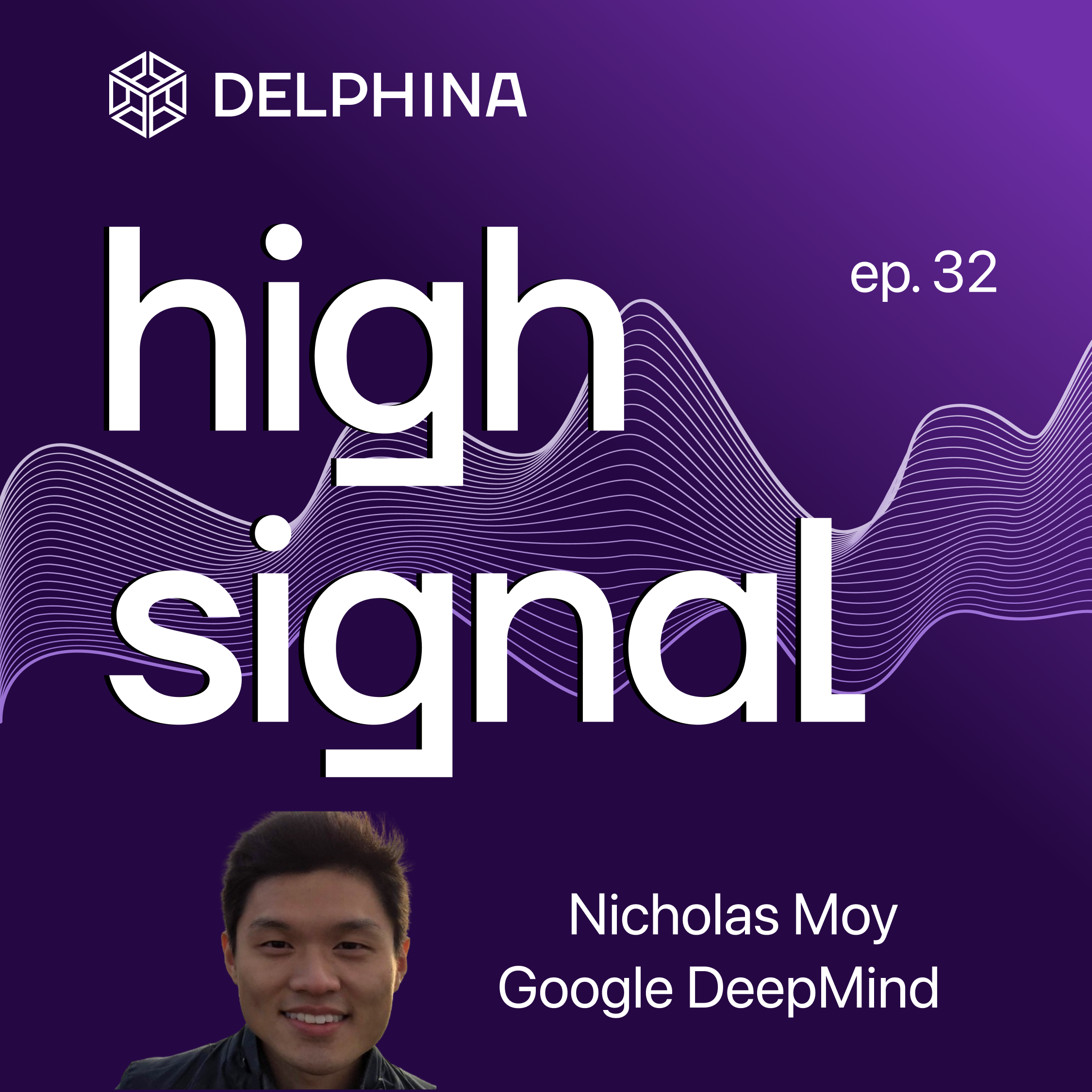Peter Wang on What Comes After Code? The Role of Engineers in an AI-Driven Future

Anaconda
Peter Wang is the Chief AI and Innovation Officer and Co-founder of Anaconda. Peter leads Anaconda’s AI Incubator, which focuses on advancing core Python technologies and developing new frontiers in open-source AI and machine learning, especially in the areas of edge computing, data privacy, and decentralized computing. Prior to founding Anaconda, Peter spent 15 years in software design and development across a broad range of areas, including 3D graphics, geophysics, large data simulation and visualization, financial risk modeling, and medical imaging.
As a creator of the PyData community and conferences, he devotes time and energy to growing the Python data science community and advocating for increasing data literacy around the world. Peter holds a BA in Physics from Cornell University.




Delphina
Hugo Bowne-Anderson is an independent data and AI consultant with extensive experience in the tech industry. He is the host of the industry podcast Vanishing Gradients, a podcast exploring developments in data science and AI. Previously, Hugo served as Head of Developer Relations at Outerbounds and held roles at Coiled and DataCamp, where his work in data science education reached over 3 million learners. He has taught at Yale University, Cold Spring Harbor Laboratory, and conferences like SciPy and PyCon, and is a passionate advocate for democratizing data skills and open-source tools.
Key Quotes
Key Takeaways
1. AI is Eroding the Value of Coding—System Design is the New Engineering
Writing code is becoming less valuable as AI takes over implementation. What separates engineers now isn’t syntax fluency—it’s the ability to design, integrate, and debug intelligent systems. The bottleneck has shifted from execution to defining the right problems.
2. Software Engineering is Becoming Debugging for Emergent Behavior
Traditional software follows strict logic, but AI systems introduce uncertainty and unpredictability. Instead of writing rules, engineers must now diagnose why an AI system behaves the way it does. Debugging LLM-driven software is less about fixing syntax errors and more about steering complex, probabilistic outputs toward useful results.
3. AI Models Are Converging—Stop Treating Them as a Moat
Every major AI company is distilling competitors’ models, making them less of a differentiator. The real advantage isn’t in having a better model—it’s in how well a company integrates AI into its business workflows. Companies that obsess over model performance while neglecting deployment and data pipelines will lose ground.
4. Stop Expecting Models to Be Correct—Build Workflows for Uncertainty
Businesses still expect AI systems to behave like traditional software. But hallucinations, inconsistencies, and errors are inherent to generative AI. Instead of chasing “fixes,” the real challenge is engineering workflows that handle uncertainty—using ranking, retrieval, and human validation where necessary.
5. You Don’t Need AI Models for Everything—Better Retrieval Often Wins
Companies overuse generative AI when classic search and structured knowledge retrieval would be faster, cheaper, and more reliable. BM25, metadata filtering, and structured queries can often outperform a costly LLM call. The future isn’t just about bigger models—but smarter ways to use data.
You can read the full transcript here.
00:00 Introduction to the Technological Revolution
00:55 Meet Peter Wang -- Chief AI Officer at Anaconda
01:16 Big Questions in AI and Software Development
03:44 Peter's Journey to Chief AI Officer
04:19 The Hype and Reality of AI
06:10 Exploring the Future of Descriptive Analytics
07:02 The Impact of Generative AI on Data Science
10:42 Navigating the Complex AI Landscape
16:26 The Role of Pioneers and Settlers in Business Innovation
28:52 The Importance of Open Source in AI Development
33:13 The Backbone of AI: Open Source Contributions
35:26 The Future of AI: Smaller and More Efficient Models
38:43 The Role of Data in AI Development
39:38 Legal and Ethical Considerations in AI
42:34 Challenges in AI Tooling and Frameworks
57:05 Human-AI Collaboration -- The Cybernetic Approach
01:01:18 Practical Advice for Data Science Leaders
01:05:08 Conclusion and Final Thoughts
Links From The Show
Transcript
In the spotlight: Our most popular episodes
Listen up: Our latest discussions
Hear the hottest takes on data science and AI.
Get the latest episodes in your inbox
Never miss an episode of High Signal by signing up for the Delphina newsletter.


.svg)

.png)




.png)